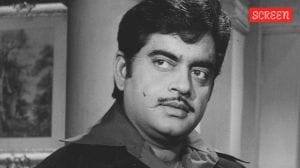
So what is it that makes Gone With the Wind such a compelling read, beloved in countries and contexts far removed from the Civil War Georgia and Atlanta it is set in? We explain, in 3 points and with a few spoilers.
First, the basics
Gone With the Wind is the story of Scarlett O’Hara, whose 16-inch waist and bewitching green eyes hold three counties in thrall. The sheltered daughter of a rich cotton plantation owner, the 16-year-old Scarlett will soon see her world “gone with the wind that had swept across Georgia” as the southern states of the US go to war against the north to safeguard their right to own and trade slaves.
But Scarlett will survive, through courage, cunning, and sheer refusal to give up. She will be helped, baited, loved, and hated by Rhett Butler, who could have been Prince Charming, but is too much of an adult to value fairy tales.
Gone With the Wind has its sympathies firmly on the wrong side of the American Civil War (1861 to 1865). It paints Black people as lovable and loyal pets, their white owners as benign masters who occasionally whip the slaves for their own good. Tara, the plantation Scarlett owns, has become a trope of the lost world of the pre-war South, a place of safety and beauty.
All its ‘good women’ are angels in the house — women who tirelessly perform acts of care, and never question their husbands.
Story continues below this ad
It assumes that on a night of soaring passion, the alpha male hero can dispense with consent.
And yet.
Come for the beauty, stay for the lessons
Gone With the Wind is over 1,000 pages. Yet, it is utterly unputdownable. The writing is vivid and captivating. Scarlett’s many trials and tribulations, her triumphs, her irresistible spirit, and her unfailing instinct to survive hook you in and hold you firm.
The book is peopled with scores of characters, yet they all have something defining, something worth remembering.
Scarlett is contrasted with the saintly Melanie Wilkes, her sister-in-law and rival in love, while the enterprising, unscrupulous Rhett Butler is contrasted with Ashley Wilkes, the virtuous, but ultimately useless, honourable gentleman.
Story continues below this ad
But for an aware reader, there is much to read between the lines. Gone With the Wind is a lesson in what happens if nostalgia is allowed to take over memory. Your country can have a terrible past, but you can still love it. But if you allow the love to take over rationality, what results is something like this beautifully ugly book — a cause doomed because it ran against the arc of justice and progress is made to look like a heroic quest, all the braver because it was undertaken in the face of certain defeat.
The defeat of racist slave owners is made to look like ‘gotterdammerung, the dusk of Gods’ (the words of Ashley Wilkes), like the fading away of an elegant and refined way of life.
To understand how white-washing and revanchism work, Gone With the Wind is an invaluable read.
Look around for the Wilkeses
In the times we live in, where sexism, bigotry and xenophobia are enjoying a revival, Gone With the Wind holds important lessons — that people with discriminatory politics can be perfectly nice in person. That conflicting things can be true for characters in books and characters around you. That someone can be brave or funny or warm or supportive, along with being bigoted or racist. People, like books, are more than the sum of their parts, and the parts can be both enchanting and repulsive.
Story continues below this ad
An alert reading of Gone With the Wind is a great exercise in learning to resist propaganda. A book can be dazzling, touching, relatable, and still get many important things very wrong.
‘Tomorrow is another day’
One of the most famous quotes from the book, ‘Frankly, my dear, I don’t give a damn’, is in this piece’s headline. Scarlett, at long last, has realised that she has always loved Rhett. But he is by now tired of waiting for her. He delivers this line and walks out on her, once again robbing Scarlett of the sanctuary she was just within reach of.
Scarlett is thwarted again. But she refuses to give up. The book ends with Scarlett telling herself she will get Rhett back. Tomorrow is another day. Unstained by the defeats of today, tomorrow is a fresh chance to start anew. This defiant declaration of hope is another of the book’s most famous quotes.
It can be argued that Scarlett is deluded and in denial. And yet, ‘tomorrow is another day’ is an important mantra to remember in today’s age, where challenges seem to multiply everywhere and hope is in short supply.
Story continues below this ad
It is never too late to hope. There is always tomorrow, a new chance to get out of bed and put on pretty clothes and place one foot in front of the other, till one’s personal version of Tara is reached.







































